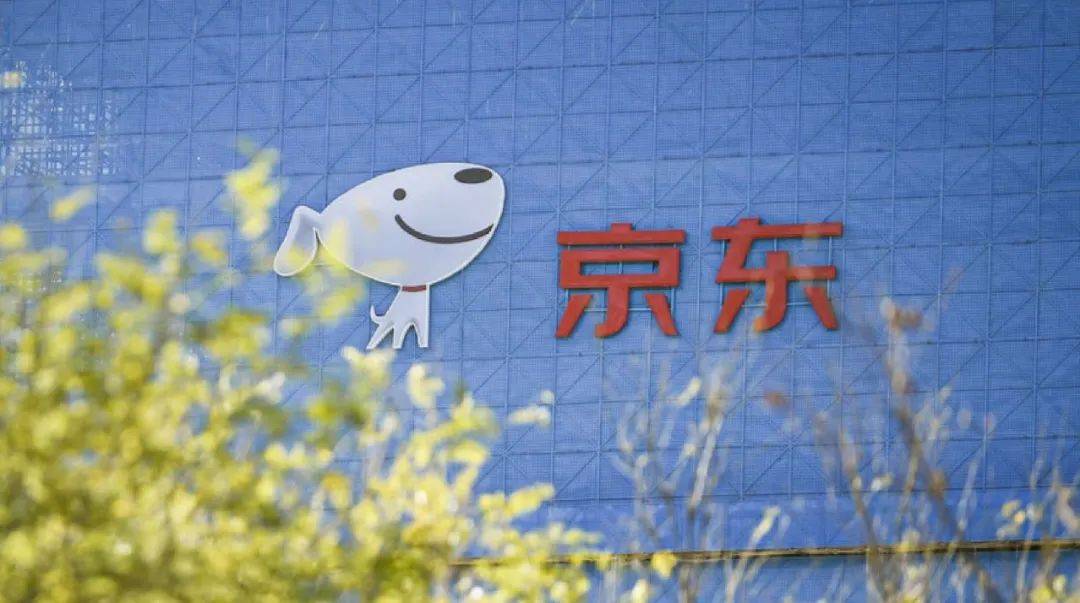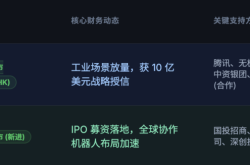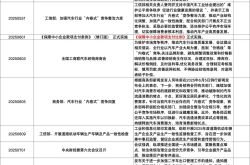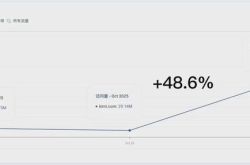Who Will Revitalize JD.com?
![]() 01/16 2025
01/16 2025
![]() 571
571

Can Liu Qiangdong breathe new life into JD.com?
Author | Jia Siwen
Editor | Yang Zhou
Over the past two years, JD.com has encountered turbulence unprecedented in its history.
This turbulence encompasses macroeconomic factors, external competitive pressures, and is closely tied to Liu Qiangdong's personal return. The founder's every move has prompted the established e-commerce giant to undergo a series of seemingly intense, and somewhat contradictory, organizational adjustments and strategic upgrades amidst a rapidly evolving industry landscape:
On one hand, JD.com aims to regain its "low-price" competitiveness, enabling consumers to once again experience the appeal of "affordable quality." On the other hand, it must confront significant internal and external constraints, enduring the repercussions of declining profits, management challenges, and corporate culture conflicts.
From late last year to mid-this year, Liu Qiangdong repeatedly expressed his anxiety, responding to employee inquiries about JD.com's business and management status on the company's internal network, and publicly or semi-publicly lamenting "bloated organizations and poor internal management."
This strong dissatisfaction stems from Pinduoduo's rapid growth and Alibaba's profound changes. In particular, Pinduoduo's success in penetrating a broader market with its extreme low prices has led to a soaring market value, surpassing Alibaba in active buyers, and leading in both revenue growth and profit margins, making JD.com no longer occupy the stable position it once had when it and Alibaba were "splitting the world."
In Liu Qiangdong's view, this is a looming crisis: slowing growth and inefficient organization. If JD.com does not swiftly initiate change, it will be challenging to prevent competitors from further eroding the market.
"JD.com must change, or there is no way out." These were Liu Qiangdong's exact words on the internal network. To fulfill this promise, he directed frontline business operations from Dubai, thousands of kilometers away, sleeping only four hours a day and immersing himself in subgroups of segmented business lines such as C2 and C3.
This highly centralized command style stems from his dissatisfaction with JD.com's "slow" response and his desire to revitalize the corporate culture, making everyone as motivated as they were during the company's early days. Many comment that "Brother Dong" has returned to the state he was in over a decade ago when waging price wars against Dangdang and Suning, aiming to rebuild combat effectiveness through radical means.
However, JD.com is now an "aircraft carrier" with over 600,000 employees, no longer the agile speedboat that could quickly turn around. To achieve management reform, it cannot rely solely on passion and a few mass instructions. The difficulties of reform are apparent given the internal and external constraints.
The first issue is the need to reshape JD.com's competitiveness in terms of "low prices."
Liu Qiangdong insists that low prices have always been the fundamental weapon behind JD.com's past success and will continue to be the most important competitive barrier for its survival. However, for a considerable period, JD.com has focused on "genuine products" and "quality," with most consumers perceiving JD.com as a preferred platform for purchasing home appliances and 3C products, rarely equating it with "extremely cheap."
More embarrassingly, JD.com's self-operated model has its advantages—strong control over product quality and supply chain performance—but to offer significant discounts, it would have to dig into its own pockets or squeeze suppliers' profits.
Amidst already weak consumer spending momentum, this low-price strategy is difficult to implement, quickly leading to joint boycotts from merchants in categories such as books and creating opposition among brand owners: JD.com frequently offers promotions of 20-30% off to stimulate sales, leaving merchants unprofitable and potentially damaging brand positioning.
A further contradiction lies in the fact that JD.com's third-party products (3P) are inherently small in volume, have high rates, and insufficient traffic tilt, unable to support the banner of "low prices" in the short term.
This problem was already evident when Liu Qiangdong initially proposed that "third-party merchants should be the first to compete for low prices": the platform's merchants account for a small proportion, and their traffic is squeezed by self-operated businesses. If self-operated businesses actively subsidize, JD.com will have to bear more costs, resulting in declining profits.

Financial report data supports this dilemma: on one hand, JD.com wants to capture the lower-tier market and has to continuously offer subsidies and low discounts; on the other hand, profit margins are inevitably under pressure. As a publicly traded company, JD.com cannot ignore profits and share prices, but continuously increasing the intensity of the "Billion Subsidy" program also requires substantial financial investment. This seesaw effect is difficult to resolve through a few promotional activities.
Moreover, JD.com's past success was not only due to price wars but also because it established a robust logistics system and a reputation for self-operated quality in the early days of e-commerce. From "Yangcheng Lake hairy crabs" to "same-day delivery" and "next-day delivery," to its own customer service and after-sales system, these were originally the foundations on which JD.com was viewed as having warmth by users.
If JD.com blindly presses hard on the low-price accelerator, it may instead shake its original advantages and even lead to internal disputes: when self-operated procurement and sales departments vigorously promote sales in live streaming rooms, compressing brand profits, third-party merchants on the platform will naturally complain about "only giving traffic to self-operated businesses, not giving us a chance," making the so-called reform to bridge self-operated and 3P businesses a mere formality. In the long run, JD.com's ecosystem may struggle to support the ideal goal of being "cheap and good."
Beyond this low-price reform, JD.com's internal big company disease and corporate culture conflicts have also been brought under the spotlight.
Liu Qiangdong lambasted on the company's internal network that plagiarism and imitation were rampant within JD.com, lacking innovative drive, and that the management was "even more state-owned than state-owned enterprises." There were prominent issues such as turning off lights for lunch breaks, proxy attendance, and slacking off. Many people "did not meet long-term performance standards but were unwilling to strive."
Externally, JD.com deliberately hyped up this internal chaos to emphasize the "urgency of change"; internally, a series of radical measures were quickly implemented—including strictly enforcing attendance, strictly limiting lunch breaks, canceling proxy attendance, requiring those leaving work at 6 pm to undergo a review of their work saturation, and even directly dismissing some employees deemed to have violated "red lines."
The phrase "not my brother" once caused an uproar in public opinion because it ran counter to Liu Qiangdong's previous notion of "never firing brothers," precisely reflecting JD.com's contradictory mindset in attempting to drive rapid organizational transformation: to maintain an "employee-centric" image while stimulating strong execution, it is inevitable that there will be crudeness and conflicts.
Some say that Liu Qiangdong has started to learn from Pinduoduo's "wolf-like management" and even parachuted in executives with Pinduoduo backgrounds to handle human resources in JD.com Retail.
The latter was seen by many JD.com employees as a "scapegoat" because when stringent attendance policies, overtime culture, and various slogans of striving were prevalent throughout the floors, the outside world pointed the finger at this parachuted executive.
But if we delve deeper, we will find that this is not just the will of an individual or department but a "thorough rectification" required by Liu Qiangdong himself. For those accustomed to loose management or those who deeply believed in JD.com's original "brotherhood culture," this top-down management shock and performance pressure was naturally a violent impact.
In some online posts or exposés, many veteran JD.com employees exclaimed that they could not "adapt" and "either choose to leave," which is often the subtext of Liu Qiangdong's so-called "either be eliminated."
This seemingly "radical and pragmatic" iron-fisted approach also hides potential risks. Simply extending working hours, strictly enforcing attendance policies, and reducing lunch breaks may not lead to genuine efficiency improvements.
Office culture is particularly sensitive, often leading to reverse internal competition: if you want employees to stay at work longer, they will procrastinate and pretend to be busy, working for the sake of "KPIs," with actual output far less than imagined. High-pressure control may also lead to morale decline and talent loss, especially if middle-level managers feel that "the top only wants absolute obedience, and any complaint is labeled as 'not striving enough,'" they will inevitably choose to quit.
"Quick money, lots of overtime, and sufficient pay" is the tone of Pinduoduo's employment relationship, weakening the human dimension of the enterprise and flattening the overall structure, with executive orders often "in place overnight."
However, on the JD.com side, although it also engaged in fierce competition in its early days, it now has a large workforce and a vast business matrix. Over the course of two decades of growth, it has accumulated many traditions and inertias. With multiple organizational levels, it is no longer like the early days of entrepreneurship when an order could be executed nationwide.

If JD.com only learns the wolf-like side of Pinduoduo while ignoring underlying system and cultural differences, forcibly pushing policies will easily lead to friction between employees and management, as well as confusion between old businesses and new directions.
Of course, it cannot be said that Liu Qiangdong's approach has been entirely ineffective. Over the past six months, JD.com's "Billion Subsidy" campaign has gained traction, and sales have indeed increased in some categories. For positions such as procurement and sales, 3P merchants, customer service, etc., JD.com has indeed increased salaries, especially in the procurement and sales department, where salaries have increased from 16 to 20 months over a year, with year-end bonuses reaching up to 8 times monthly salary.
This is a clear incentive for "strivers," allowing some employees who diligently perform to receive tangible rewards and conveying to the outside world that "if you can achieve performance, JD.com is willing to pay."
Liu Qiangdong's recent initiative to distribute over 30 million yuan in New Year goods and red envelopes to his hometown also continues his personal style of "remembering one's roots," creating a positive image in front of the external public: he is not only someone who forces employees to work hard but is also willing to take the lead in spending money on charitable deeds.
From the perspective of corporate development history, many large companies often experience difficult trade-offs between "scale and efficiency" in the mid-to-late stages.
To maintain its position in the next round of shuffling in the e-commerce industry, JD.com urgently needs to coordinate the distribution of interests between self-operated and platform businesses, allowing more products to truly achieve fair competition in terms of pricing and traffic;
It also needs to balance the relationship between high-pressure management and employee creativity, so as not to lose the enthusiasm of real talent; moreover, it needs to find new growth and innovation breakthroughs beyond the "price war," such as a robust layout in instant retail and overseas markets, rather than merely "learning from Pinduoduo and motivating everyone."
At this moment, JD.com is like a giant ship that has sailed for many years. After returning to the captain's position, Liu Qiangdong has aggressively dismantled and replaced the engine, attempting to return the ship's speed and combat effectiveness to its peak, but in his urgency, he may have overlooked the fact that the hull may have aged, the crew is numerous and diverse, and the competitive landscape of the sea area is no longer what it was. JD.com is also under high expectations from shareholders and the market for profits.
Liu Qiangdong has always tried to stimulate more people's "wolf-like" spirit, but he should also be vigilant about whether the internal management methods and incentive systems match reality. Simply increasing working hours, emphasizing attendance, and controlling lunch breaks can easily lead to formalism; relying solely on high salaries and slogans to stimulate motivation may also cause employees to lack genuine trust in the company.
Ultimately, whether all employees can clearly understand JD.com's next direction, whether brand owners and 3P merchants can feel at ease investing resources on the platform, and whether JD.com can continue to maintain its advantages in distribution and service links are the true pillars determining the success or failure of this round of reform.
The outside world is watching JD.com, as well as how Alibaba, Pinduoduo, and even ByteDance compete on the same stage. More and more people have observed that China's e-commerce and retail industries are already transitioning to an existing market, with user growth dividends diminishing, and the competitive landscape no longer allowing multiple platforms to grow together in incremental scenarios as in the past.
Everyone is anxious. Ma Yun and Joe Tsai have also said that they need to "operate on big company disease," and Huang Zheng has continuously maintained "paranoid" high efficiency and rational decision-making internally, allowing Pinduoduo to maintain astonishing growth rates.
In this scenario, JD.com maintains a dual advantage of scale and brand recognition. However, transforming user perceptions, convincing lower-tier consumers that "JD.com is equally affordable," and broadening its competitive edge beyond traditional strongholds in 3C and home appliances will necessitate a prolonged period of patience, a meticulous strategy, and more than just price wars.
We anticipate JD.com eventually achieving a balanced state. We aspire for this top-down reform to dismantle the long-standing issues plaguing JD.com, effectively harmonizing "low-price strategy" with "business enhancement," without compromising respect for employees or forsaking the pursuit of profits and growth.
JD.com carries significant trust and expectations. It has provided consumers with swift and dependable services, consistently contributing to job creation and industrial advancement in society.
Reference Materials:
- TideTI: "Liu Qiangdong Eager to Learn from Huang Zheng"
- Yuanchuan Research Institute: "JD.com Trapped in Low Prices"
- E-commerce War: "When JD.com Parachuted in a Pinduoduo Executive: Longer Hours, Salary Hikes, and Emphasis on Hard Work"
*The content of this article represents the independent viewpoint of an external author. Should you have any objections to this manuscript, please contact us via the backstage.






